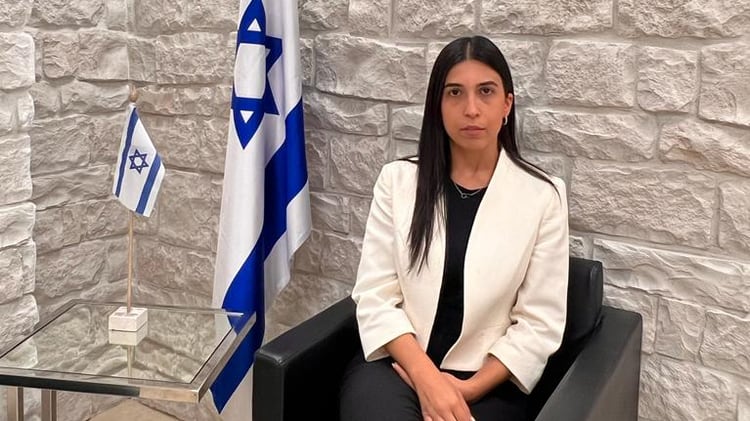Alberto Rubio
“Israel has already given many proofs to the countries of the European Union that part of the funds (it allocates to help Palestine) are directed towards terrorism, even if not directly”, insisted yesterday in an interview with The Diplomat the spokeswoman of the Israeli Embassy in Spain, Tal Itzhakov.
The spokeswoman did not comment on whether the sending of these funds should be suspended until examining “where the money goes”, as stated the day before yesterday by Ambassador Rodica Radian-Gordon, but warned that what is happening in Israel concerns the security of the whole world: “terrorism has to be a huge concern for all democratic countries”.
In this regard she blamed Iran for being the country that “is giving funds to their ‘proxies’ (referring to Hamas and Hezbollah) both in the south and in the north of Israel”. However, he avoided directly accusing Tehran of involvement in Hamas terror attacks: “There is nothing confirmed that other countries supported these attacks,” although “we know that funds, logistical support and training are coming from Iran.” “We know that Iran is ‘number 1’ in the world in terrorism,” he concluded.
Itzhakov ruled out that the crisis unleashed by the Hamas attacks could harm the Abraham Accords, signed with the Arab Emirates, Bahrain, Sudan and Morocco, and which Saudi Arabia was beginning to approach. “Relations with these countries are extraordinary,” she said before accusing Hamas “of launching this savage terrorist attack instead of putting the Palestinian issue on the agenda of the Accords and joining the circle of peace that is being created in the Middle East.”
Therefore, she assured that “our main goal is to disable the terrorist infrastructure of Hamas“, a group she equated with ISIS, and added that “Israel is not targeting Palestinian civilians because they are the first victims of Hamas since 2007”. “The problem,” according to the Israeli spokeswoman, “is that Hamas is using its own people as human shields, but we will do our best to make sure that nothing happens to those not involved.”
Regarding the increased tension on Israel’s northern border, where Hezbollah has launched several attacks, she assured that “we have no interest in reaching a regional war, we want to maintain stability in the region“. But he raised the question of “whether what Hezbollah is doing is just a show of solidarity with Hamas or whether it is going to enter the game and become an important factor in that war”.
During this interview, Tal Itzhakov expressed his condolences to the relatives of the young Spanish-Israeli Maya Villalobo, as soon as her death was confirmed by the Ministry of Foreign Affairs. Villalobo was killed during the first Hamas attack on the Nahal Oz military base, where she was doing her military service.
Itzhakov highlighted the social response to Hamas attacks. “Despite the fact that in recent months we have had many internal debates, Israeli society has shown great solidarity,” such as the response given by 300,000 reservists who immediately came to the mobilization decreed by the government or the donations of blood and goods by civil society. “It is very moving to see the unity of our society at this time,” she said.
The Israeli spokeswoman stressed the clear support shown by US President Joe Biden, and thanked all the messages of support they are receiving “at all levels, among which she mentioned the telephone conversation that King Felipe VI had with the President of Israel, Isaac Herzog, and the demonstrations of support for Israel, such as the one that took place on Monday in front of the Embassy.
Repatriated citizens
Regarding the civilian repatriation operation launched by the Spanish Ministry of Foreign Affairs, two planes have arrived at the Torrejón air base. The first one, which landed in the early morning of October 11, repatriated 209 people (185 Spaniards, 7 EU citizens, 5 Latin Americans and 12 third country nationals).
In a second plane, another 220 people arrived last night, of which 149 are Spaniards, 15 EU citizens, 36 Latin Americans and 20 from third countries. The foreigners, in both cases, are relatives of Spaniards, residents in Spain or residents in other countries who have been included in the flight at the request of their respective governments.







